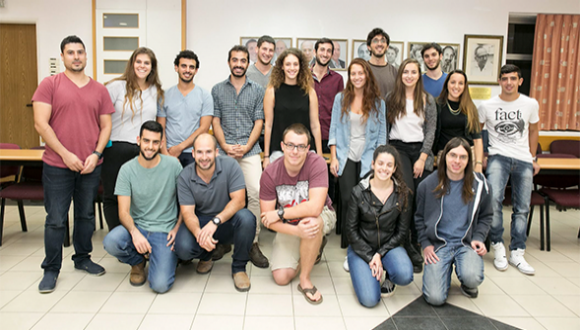BSc in Engineering with a program in the Humanities
The spirit behind technological inventions
"Don't tell people how to do things, tell them what to do and let them surprise you with the results." General George Patton
When the first iPhone was launched, Steve Jobs explained that technological breakthroughs, both present and future, are not created solely by software engineers. They require original thinking, creativity and vision, as well as knowledge and education in disciplines far removed from engineering. According to Jobs, Apple's DNA is not based on engineering alone, but rather on a constant connection with the free thought of the humanities. In this Jobs expressed the growing awareness that the Humanities are important to the endeavors of scientists and engineers –who excel in the exact mathematical way of thinking, but must also exhibit creativity and innovative thinking.
Knowledge in Philosophy, History and Literature enables engineers to expand their cognitive boundaries, develop new perspectives, and lead technological processes as entrepreneurs. Major breakthroughs are sometimes born of a fusion between technological innovation and a non-technological vision. See for example the social networks, the wisdom of the crowd, and the place of the cloud in the digital world.
Human capital turns an idea into an invention
If you recognize the importance of engineering, but also the significance of theories from different worlds; If you feel at home with technology, but believe that creativity and the ability to think freely are just as important; If the next startup is already taking shape in your mind, but you don't know how to make it come true; Engineering with Humanities is the program for you.
New Engineering programs incorporating studies in the Humanities will open in Electrical & Electronic Engineering, Mechanical Engineering, Industrial Engineering and Biomedical Engineering. These special programs are already arousing considerable interest among top managements of Israel's leading corporations (such as Google, Microsoft and Intel). Intel has even declared: "As one of the largest employers of engineers in Israel, Intel regards human capital as the most crucial resource for excellence and growth. Much of Intel's technological innovation worldwide is a product of creativity and innovation led by the exceptional engineers at Intel's development centers in Israel. The new program of Engineering with the Humanities at Tel Aviv University will help nurture unique talents, in keeping with Intel's vision."
The target population for this program is outstanding students – destined to become the future technological leaders of Israel. Students will be guided by personal supervisors from the Faculty's staff, as well as representatives of leading companies in Israel's elite industries. The 4-year program includes courses in a range of areas, totaling 32 hours.
The Humanities section of the program will include two required courses, elective courses and a seminar.
Scholarships
The program's students will receive scholarships as specified in Form #32.


